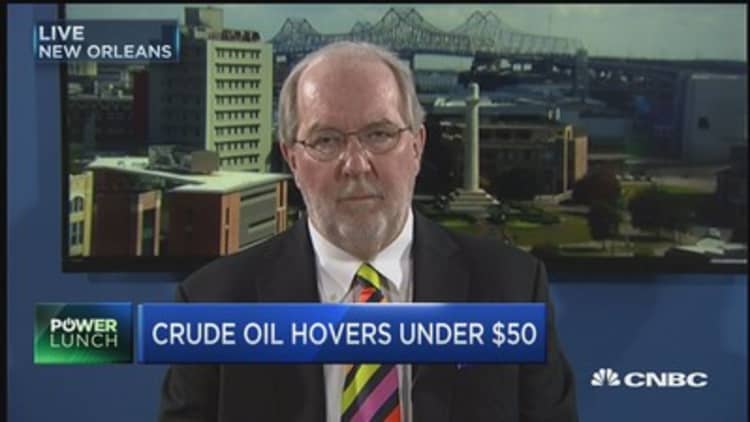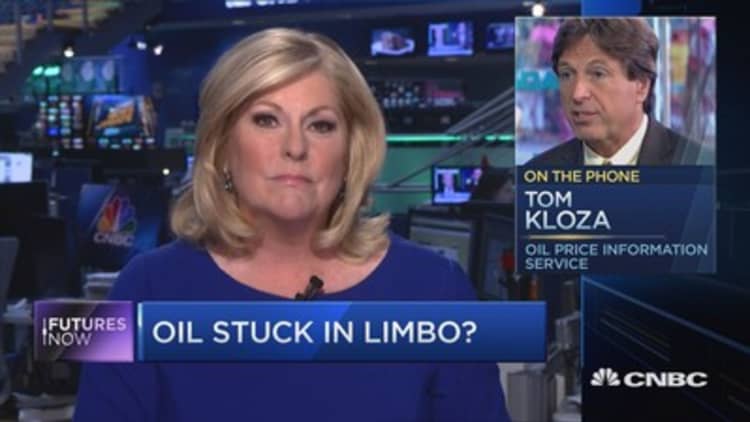Oil prices edged lower on Friday on doubts about OPEC's planned output cut.
Organization of the Petroleum Exporting Countries experts and counterparts from non-member producers such as Russia started two-day negotiations on Friday on limiting output to curb a global glut that has weighed on markets for two years.
As of late Friday in Vienna, officials had have yet to agree details of a plan to cut oil output and Iran is opposing such a move, OPEC sources said on Friday.
Dow Jones reported the technical meeting was deadlocked as Iran and Iraq disputed the data, with Iran saying OPEC underestimates its production.
Earlier this week, Iraq said it wanted to be exempt from production cuts because it needs oil revenue to carry out a military campaign against Islamic State militants. Baghdad has also quibbled over how OPEC calculates its crude production.

U.S. West Texas Intermediate crude settled down 91 cents, or 2.05 percent, at $48.70 a barrel. WTI was fell 4.2 percent on the week for its biggest weekly loss since mid-September.
The close below $49 is a bearish signal because it means the $49 to $52 range supported by OPEC talks has been broken, John Kilduff, founding partner at Again Capital told CNBC. It could now fall to a support level of $46.40, he said.
Brent crude futures were down 69 cents, or 1.4 percent, at $49.78 a barrel by 2:44 p.m. ET (1844 GMT), on pace for a weekly decline of nearly 4 percent.
Russia expects a quick recovery in U.S. shale oil production so that an output freeze could be short-lived, Interfax news agency reported, citing the Russian energy ministry.
Russia will organize a gathering of domestic oil producers a week before the OPEC meeting, industry sources said.
A source close to one of the companies said the meeting had been postponed from Nov. 9 after discussions involving Igor Sechin, who heads Russian state producer Rosneft and is known for his anti-OPEC stance.
Commerzbank analysts said the success of an output deal would depend on whether Gulf producers Saudi Arabia, the United Arab Emirates, Kuwait and Qatar are willing to cut on their own if no agreement can be reached with others.

The number of oil rigs operating in U.S. oil fields dropped for the first time since June, oil services company Baker Hughes reported Friday. The oil rig count fell by 2 to 441.
Baker Hughes has reported steady rig rates or additions for 17 weeks.
Prices rose as much as 13 percent after Sept. 27, when OPEC announced its first planned output reduction in eight years. The cartel is expected to meet on Nov. 30 to hash out how much each individual member should cut.
"Clearly the prices for crude oil have risen high enough that a lot of producers, shale producers, did put on hedges," said David Thompson, executive vice president of Washington commodities broker Powerhouse.
French oil company Total SA said on Friday it expected prices to remain volatile and continued to reduce costs, while Italy's ENI SpA reported a larger-than-expected quarterly loss.
However, U.S. companies Exxon Mobil Corp and Chevron were able to beat expectations because of cost cuts.
— Tom DiChristopher contributed to this story.

